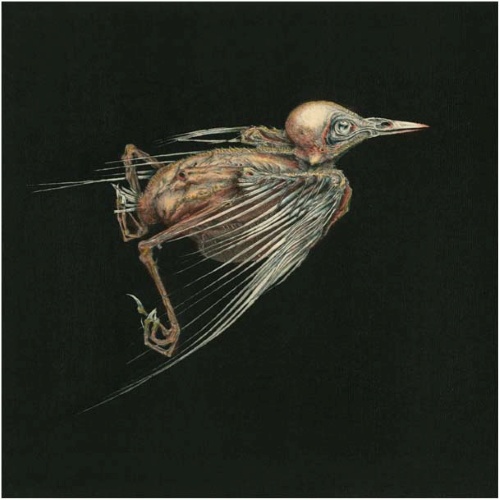By Kodie Cherrille (The Cascade) – Email
Print Edition: January 14, 2015
It’s an old story for us music-guzzling SUVs of culture: the year comes and goes; we put together a tidy list of favourite albums released over the year; we dab the sweat off our temples as we labour over the order of albums five through seven. And then, soon after, some amazing album comes in like a jerk and shakes our list up, and the world is turned upside-down. August’s Meshes of Voice, by Jenny Hval and Susanna, has belatedly arrived to claim that spot this year.
The first proper song, “Black Lake,” delivers the album’s mission statement. On the surface, the song’s a melancholic folk dirge, with a simple verse-chorus-verse progression. But then a vast swath of noise (a distorted guitar coming through an overheating amp, recorded much too close to the mic) consumes everything like a violent deluge. As it ascends in volume and pitch, there is suddenly grounding: a tectonic bass drone and breathy crooning push the piece back to tonality. The violent surge recedes, and the piano returns — this time in a major key, leading into the elegant, fragile coda: “The black lake took / The black lake gave.”
Hval has said in an interview that her songwriting process usually starts with some kind of noise or atmosphere as a prompt, as opposed to melodic or lyrical cues, and that she builds the rest of the song around that initial prompt. This likely explains how Meshes of Voice uses noise and ambience so well; these elements, which are often subordinated to more traditional elements like melody, are central to the song. Another impressive factor is how the lack of percussion (there might be two or three songs here with softly plodding drums or a close-mic’d stand-up bass keeping time, but not much else) doesn’t hinder the momentum of the music.
Meshes of Voice deftly walks a tightrope over gothic folk instrument, ambient textures, and drones that threaten to collapse into white noise. These musical elements compose the atmosphere of this world of an album: Hval and Susanna paint a haunted world suffused with mythology, menace, and beauty, and often project these images onto themselves (“O Sun O Medusa” leads to “A Mirror in My Mouth” leads to “Thirst that Resembles Me”).
Through it all, it’s the human voice that keeps these disparate sounds and themes within this planet’s orbit. Both Susanna and Hval offer jarring vocal performances — with the former offering deep, meditative croons and chants, and the latter doing nothing short of vocal ballerina. Susanna’s vocal mix is cloaked in reverb, while Hval sings right into your ear in that chilling, sensual way had Bjork mastered in Vespertine. Album highlight “I Have a Darkness” takes digital vocal distortion straight out of The Knife’s playbook, segueing into a murky sheet of bass-heavy noise, all this ugliness still grounded by voice — “honeydew, honeydew,” they call — warbling like birds over a burning world.
Meshes of Voice is a breakthrough for both Hval and Susanna — two musicians with great musical chops taking a leap forward — and demands continuous immersion and exploration. How can I successfully speak reductively about such a lush world? How can I put this on my list of favourite things and be done with it? I cannot — all I can do is listen, again and again.


